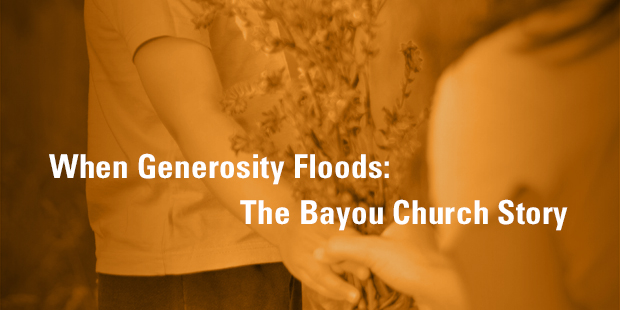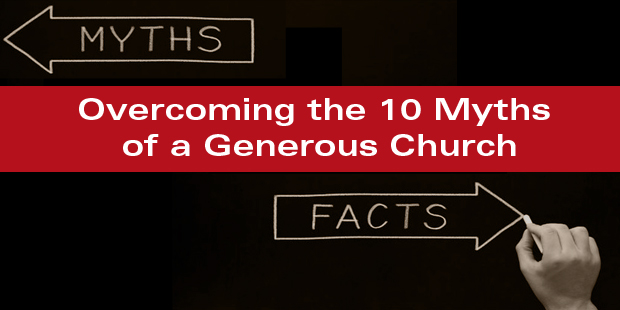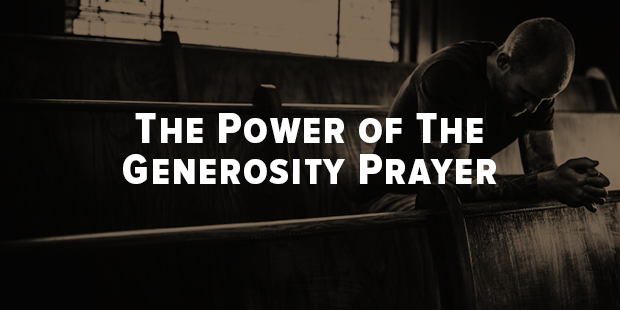
How to Talk About Giving So People Won’t Tune You Out
When it comes to finances, most churches are just getting by. A recent study by LifeWay Research found a third of Protestant senior pastors say their church’s giving was under budget in 2015.
LifeWay Research began studying the effects of the economy on churches in 2009, when the country was engulfed in economic woes. In October 2010, most pastors (80 percent) said the economy negatively impacted their church. That number dropped to 64 percent in 2012. In 2015, more than half (51 percent) of Protestant pastors said their church’s offerings were still affected negatively by the economy. Only 13 percent said the offerings were improving.
Many pastors hesitate to discuss money from the pulpit, not wanting to offend seekers or overburden members. The struggling economy and stories of high-profile church leaders’ misappropriation of funds and moral failures have caused some pastors to avoid the money issue. But generous giving is a biblical instruction—and an important conversation to have with members. So here are some tips to help overcome fear and build confidence to start a conversation about giving.
- Start small. Church leaders need to be aware they probably exist in a poor money culture for two reasons. First, people may be holding on to the myth that no church can be trusted with money. Second, many pastors have been absent from the conversation so there isn’t a strong history or culture to build on. Ramp up the conversation slowly over time before going big. If you start big, people may question your motives.
- Be personal. Share a personal story of how God has been at work in your life teaching you about money. Maybe He met a need unexpectedly, provided beyond your wildest imagination, or has revealed to you how blessed you are. Be personal and practical.
- Lead well. You’ll probably need to disciple your staff on what the Bible says about money. If you’ve been silent, it’s likely that few have been growing in that area. Your staff and church leadership look to you to lead the way, so pick up the towel and serve them. You may want to read a book together on giving.
- Pray weekly. Pray for the careers, financial provision, and needs of your people during your weekend worship service. I’m confident they are most likely under-discipled in this area. They are chasing the wrong things, worrying about the wrong stuff, and unaware of the powerful ability of God to provide. Churchgoers need a money shepherd and a God who cares about their finances.
- Read Scripture. God’s Word is full of His promises to provide for our needs. Each book of the Bible contains tremendous principles to apply. God is never-ending in His promises about our futures. Take the time to lead your people, allowing God to speak to them about one of life’s greatest pressures.
- Reveal process. You’re probably going to need to build confidence in the subject. If people assume churches do wrong things with money or are nervous about trusting your church, then help increase their confidence. Share openly about the checks and balances your church has in place. Talk about how wisely you invest money to make a difference. Don’t hide financial facts or important items about your books. Handle God’s money with the highest regard so you are never afraid to have a money conversation.
- Deliver a message. Or even better, try an entire message series on money. Here are some topics you may consider addressing:
- God is a giver
- Money is a blessing
- Lies we believe about money
- Giving like God is fun (How does it feel to give a gift?)
- God’s principles for money
- God’s promises for your future
- Thank them. Your church is making a difference every week in the lives of kids, youth, and adults. You are changing the face of your community and hearts on the other side of the world. Thank your people for their generous spirit. Show them how their money is making a difference. Celebrate God’s resources going through your church toward the kingdom.
It’s OK to talk about money in church. God created it to bless our lives and bless others through us. He wants our lives to flourish pressed down, shaken together, and running over. Get confident. Redeem the topic. Refresh, renew, and release your people.
Would you like to learn more about generous giving? Connect with an Auxano Navigator and start a conversation with our team.

Tags: Generosity, Generous giving, Todd McMichen



























